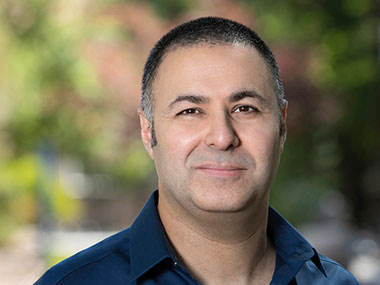Yftah Tal-Gan: Development of peptid-based tools to study bacterial communication
 Title
Title
Development of peptide-based tools to study bacterial communication
Mentor
Department
Biosketch
Since joining the University of Nevada, Reno, Professor Tal-Gan has established a chemical biology research program with the overarching goal of developing and utilizing peptide-based probes to study bacterial communication pathways and their role in bacterial pathogenesis and inter-species competition. This research program is multidisciplinary and spans from organic synthesis and analytical characterization, to biological screening, structural determination of biomacromolecules, and molecular microbiology. Current projects in the lab are funded by one National Institutes of Health (NIH) and one National Science Foundation (NSF) grants, and resulted in 40 papers from the lab.
Project overview
Quorum sensing (QS) is a ubiquitous cell-density-based communication mechanism that is being utilized by bacteria to regulate many important symbiotic and pathogenic phenotypes. As such, QS has attracted considerable attention as a means to control bacterial behaviors. Although diverse, QS circuits generally rely on the production, secretion, and detection of a chemical signal, or pheromone. The concentration of the signal is directly proportionate to the bacterial population, and as it reaches a sufficiently high concentration, representing high cell number in a given environment, the signal effectively binds and activates a cognate receptor. Receptor activation then leads to altered expression of genes involved in group behaviors. From a chemical perspective, deciphering the molecular interactions that govern signal:receptor binding and lead to receptor, and consequently circuitry, activation would allow the development of novel chemical tools that could be applied to temporally modulate QS response and study the role of QS in the bacterial natural niche.
In this project, the PREP undergraduate researcher will synthesize and purify peptide-based signal analogs of the streptococcal ComABCDE QS circuitry, termed competence stimulating peptide (CSP). The PREP undergraduate researcher will then assist in evaluating the biological activity of the different CSP analogs they produced to delineate structure-activity relationships and define the molecular interactions that govern signal-receptor binding. This information would then be used to design novel CSP-based QS modulators with desired activity profiles.
Pack Research Experience Program information and application